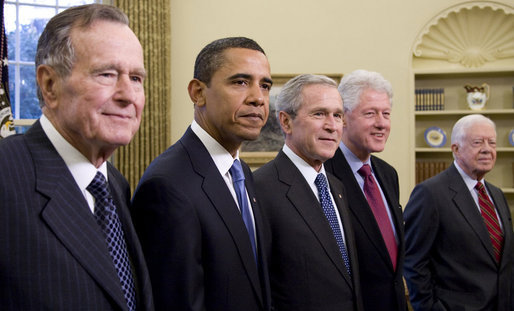
Before Leaders can Lead…
Heng Ling, 11/1/2020, Denver
We humans are often dazzled by those who exhibit great leadership skills. Some, like President Franklin Roosevelt, warm people’s hearts with their empathy and understanding. Others, like President Kennedy and President Obama, inspire people and fire up imaginations. And there are also those who, like Apple’s founder Steve Jobs, command people’s attention and demand everyone’s very best and beyond.
If these examples lead one to think that most people do not meet leaders in person very often, this would be wrong. In fact, everyone literally encounters leaders everyday. Beyond supervisors and project leaders at our work or teachers in our kids’ classrooms, our trainers at the gym lead us to pursue better fitness. The mechanics at our car garages lead us in figuring out what makes our vehicle run better. Librarians and bookstore assistants lead us to new learning and adventures. And if we ask the waiters at restaurants and servers behind the counters, they’d lead us to the best offerings for our tastebuds.
If one really thinks about it, every one of us is a leader in our own lives; and in our family lives, on those occasions when we ourselves are not the leader, surely we know who the leaders are.
“But surely,” one might quip: ”figuring out one’s own monthly budget and where to take the family to vacation don’t have much to do leading international conglomerates or even nations and states!” As it turns out, all good leaders, regardless of the number of people they lead, share at least one thing in common.
And it is this: before leaders put their leadership skills into action, they need to decide on what course of actions to lead their organizations toward. And good leaders — regardless of how many people they lead — all need to first figure out what is actually happening, and what are the problem that need to be solved. In other words, good leaders need to pursue the factual truth before they can lead.
Imagine planning a vacation with mistaken understanding of one’s own bank account balances. It might cause one to not be able to pay the rent or mortgage down the road — or worse, it could cause one to be stranded in the middle of the vacation. Or imagine mistakenly thinking that some work project has already been completed when it hasn’t, and deciding to spend the rest of the evening with friends. It may make the next day at work awkward or worse.
If this leads one to ask “What about dreaming big for one’s life?” and “surely it doesn’t make any sense to constrain one’s dream!”, that is a great observation! But think about it, pursuing one’s dreams and pursuing them successfully requires managing one’s life realistically and effectively. And this brings us right back to the need to pursue facts.
What gets a bit trickier is when other people are involved. Imagine being the leader of one’s own family — maybe 2, 3, or 4 people. What’s changed is that the leader may not be able to actually live their lives and experiences. But in order to make good decisions, the leader still needs to know what actually happened with them — and the hope is that everyone will tell (at least) the leader what actually happened. A little imagination in the telling might still be ok, but too much would almost certainly become a problem. So perhaps the leader might start speaking to everyone about telling the truth; in times of distress, the leader may even demand the truth; and in some circumstances, the leader may learn the necessity to speak to different people, multiple times, in order to figure out what actually happened. Very soon, the leader will realize that he or she can’t just crack jokes with everyone all the time any more. In fact, the leader will realize that any occurrences of the leader telling any falsehoods can become a signal to others that it’s ok for them to also do the same. Therefore, the leader needs to exemplify telling the truth.
Whereas getting the bank balance wrong may ruin a family’s vacation, any mistake made by the leader of great many people will be amplified by the number of people in the organization. One needs only to study the history of any kingdom or empire in any part of the world to notice that with each tiny bit laxing in their leader’s pursuit of factual truth came a bit of decline of the entire state. In extreme cases, a singular factual mistake of a leader can lead to the total destruction of all of its people, and possibly even the rest of the world. The erroneous belief in the supremacy of the Aryan race by Adolf Hitler did that to the German people and the rest of the world.
A good leader of many people will have to amplify those efforts of leaders of smaller family, which, from the previous discussion, include speaking to people about bringing to the leader only the facts, exemplifying telling the factual truth, and committing (even more) efforts to investigating for the factual truth. Additionally, now the leader may need to institute policies to promote speaking only the truth and/or against spreading falsehoods. And the leader needs to become more mindful of the motivations and limitations of those around him, for it’s human nature to speak in ways that promotes one’s own interests and desires — and over many relaying repetitions, it only requires slight adjustments at each retelling — each within the confines of “telling the factual truth” — to lead to complete misinformation.
It’s little wonder that the most famous story of our nation’s founding father and first president, general George Washington, is not about his military prowess or bravery, nor his famed examplary gentlemanly conduct and modesty, and not even his skill as the first president and first leader of a fledgling nation, but his honesty, even as a young child, in admitting that he was the one who had chopped down his father’s favorite cherry tree!
So, can you imagine any good, meaning responsible, leader who would ever speak lies constantly? Or spread rumors without checking their factual truthfulness? Or even openly retort, “How would I know?” whether what he/she had just said was factual or not?!


